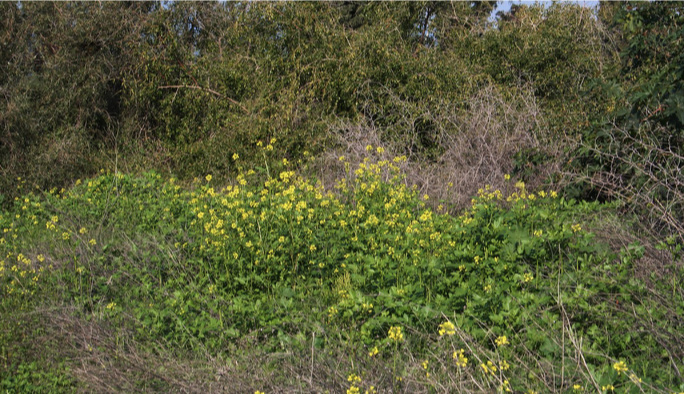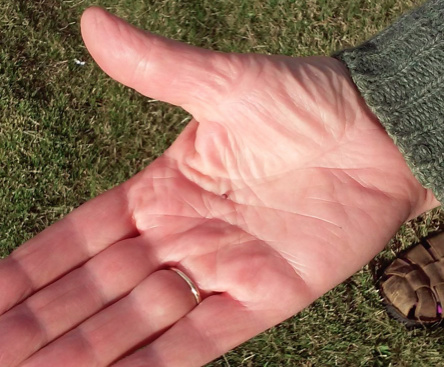
ALVIN JOHNSON looks at some famous Biblical mentions of the mustard plant…
The ‘sinapis’, believed to be the mustard plant, is only mentioned in the New Testament. It is found in Jesus’ teaching on the ‘Parable of the Mustard Seed’.
“He told them another parable: ‘The Kingdom of Heaven is like a mustard seed, which a man took and planted in his field. Though it is the smallest of all your seeds, yet when it grows, it is the largest of garden plants and becomes a tree, so that the birds of the air come and perch in its branches.”’ – Matthew 13:31-32 (See also Mark 4:30-32 and Luke 13:18-19)

The yellow flowers of the black mustard growing wild near Ein Gev in Galilee. PICTURE: Alvin Johnson.
Dr AL Shinners, director of the herbarium at Southern Methodist University in Dallas, makes the comment that “the mustard seed would indeed have been the smallest of those likely to have been noticed by the people at the time of Christ”.
“The principal field crops (such as barley, wheat, lentils, beans) have much larger seeds, as do vetches [ie climbing plants] other plants which might have been present as weeds…There are various weeds and wild flowers belonging to the mustard, pigweed, and chickweed families with seeds as small or smaller than mustard itself, but they would not have been particularly known or noticed by the inhabitants.”
This, however, raises another issue. Later Jewish writings state that the mustard was not a garden plant, but grew wild. Roman writer Pliny the Elder, who lived between 23 and 79AD, wrote about the mustard plant in his work Natural History and said that “[w]ith its pungent taste and fiery effect, mustard is extremely beneficial for the health. It grows entirely wild, though it is improved by being transplanted: but on the other hand, when it has once been sown, it is scarcely possible to get the place free of it, as the seed when it falls germinates at once.”

Look closely – the mustard seed is indeed a very small seed. PICTURE: Alvin Johnson.
There is another issue regarding Matthew’s use of the word ‘tree’. It really is quite generous to call the black mustard bush a tree. Interestingly in Mark’s Gospel of the same passage, he avoids using the word ‘tree’ when mentioning the sinapis.
Perhaps in all this, we need to keep in mind that Jesus spoke in Aramaic; and we have a translation firstly into Greek and then into English. We also need to ask some questions: Have scholars made the correct plant identification? If so, have we fully understood Jesus’ point? Are we being too pedantic in expecting scientific exactitude from a parable, which is not meant to be viewed in this way?
Jesus mentioned the mustard seed in the context of its smallness on another occasion, when He linked it to a person’s faith. He said “…you have so little faith. Truly I tell you, if you have faith as small as a mustard seed, you can say to this mountain, ‘Move from here to there,’ and it will move. Nothing will be impossible for you.’” (Matthew 17:20)
This is an edited excerpt from Alvin Johnson’s iBook ‘Biblical Flora’, 2017. The book is available for free download on iTunes. A teacher’s edition is also available for purchase.






